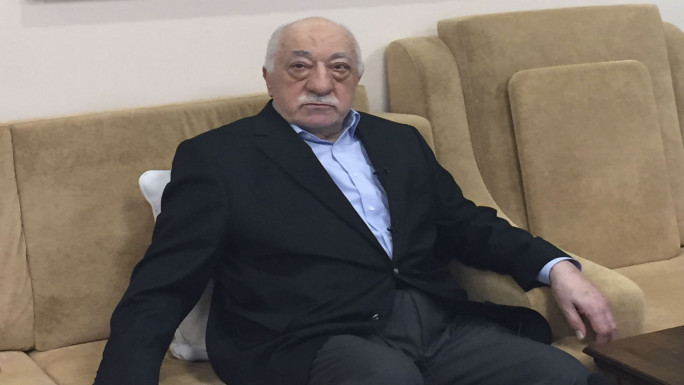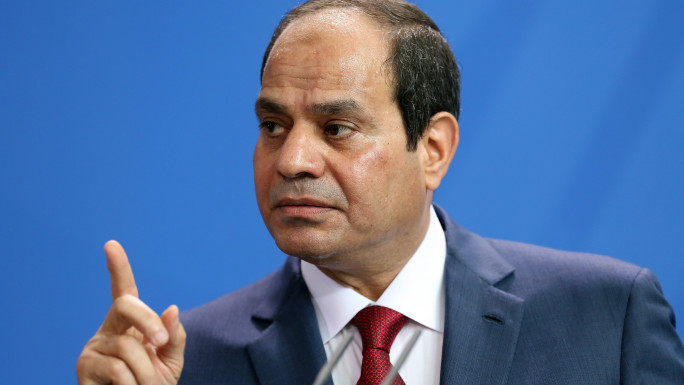
The myth of Greater Israel drives Zionist genocidal expansionism
On October 7 2023, Hamas breached the 17-year-long Israeli blockade of the Gaza Strip with a brutal, coordinated attack on at least seven Israeli military installations surrounded by more than 20 residential communities.
In a retaliatory frenzy, Israel unleashed a mass Hannibal directive, with tanks and gunships firing indiscriminately at both Palestinians and Israelis, foreshadowing its deliberate criminal atrocities to come.
Netanyahu’s murderous rampage, assisted by the manipulation of trauma with fabricated atrocity narratives and debunked systemic rape allegations reminiscent of Jim Crow, aligns with the Zionist 'Greater Israel' plans and practices of land and resource theft with as few Palestinians as possible.
In contravention of international law, Israeli genocidal expansionism knows no limits, as recently conveyed by its Finance Minister who called for Israel’s borders to extend to Damascus.
Zionist genocide functions as it always has, now supercharged by US imperial impunity. This emboldened aggression allows for shameless expansion beyond Gaza, targeting the West Bank, Lebanon, Syria, Yemen, and Iran, with eyes on swaths of Saudi Arabia and potentially Iraq and no signs of de-escalation in sight.
Shockingly, Israeli soldiers have documented their own war crimes, flaunting them online for "likes," seemingly using these displays to gain attention, even from potential partners, showcasing a disturbing normalisation and sexualisation of violence.
Zionist actions reveal a chilling level of detachment, cruelty and a lack of empathy toward the Palestinian “other”.
These can be witnessed in the military through its genocidal campaign, which regularly targets women, children, peacekeepers, journalists, academics, prisoners of war and medical personnel, among others, and within Israeli society through countless examples from the past 12 months, including numerous cases of Israelis mocking Palestinians for their pain and loss.
These sectarian tendencies are intrinsic to Zionism’s core design, rooted in its origins as a reactionary movement which champions global apartheid.
From its start, Zionism relied on a manufactured social identity built on misinformation, the dehumanisation of "the other" and a commitment to expansion and dispossession.
The appeal of Zionism
In response to the wave of antisemitic violence in the late 19th century in imperial Russia, Jewish people defended themselves in several ways.
First, those with the means fled to Western Europe, the Americas, Australia and other locations. Second, many chose avoidance, further self-segregating within Jewish communities or shtetls. Third, a minority opted for defensive aggression, organising self-defence units to repel antisemitic attacks.
Zionism emerged during a time marked by the rise of European colonial and nationalist movements, particularly in reaction to the restrictive “May Laws” governing land ownership in Jewish communities within the Russian Empire.
Like other fascist movements, Zionism offered a romantic vision of heroism and valorisation of violence, in its case, through the construct of the 'new Jew.’
This narrative adopted the antisemitic notion that Jews were responsible for their own suffering, promoting segregation and land acquisition in a new homeland as the solution.
The allure of Zionism for Jewish people lay in its promise of social cohesion and the narrative of "safety" through land acquisition and segregation, at a time when they faced restricted rights to own land and their social structure was under siege.
This period signified the moment when Jewish Zionists began viewing themselves as a distinct marauding group of colonists.
Zionist Partisan Identity
Zionist ideology and its associated propaganda offer rewards of sociality, resources and empowerment, making it particularly attractive to alienated people in a capitalist society that victimises them.
However, it conditions the reward on alternative truth, sectarianism and additional white supremacist, colonial constructs.
The Identity-Based Model of Belief explains how social identity, particularly partisan identity, influences individuals' beliefs and behaviours.
It suggests that people are more likely to align their beliefs with their party or social group than with facts, prioritising identity over accuracy when processing information and frequently sharing negative misinformation about out-groups.
This model highlights the tension between social identity and factual accuracy in addressing misinformation. Research has even shown that perceiving others as part of one’s group activates the brain's reward system, fostering loyalty and preference.
Partisan identities, like all identities, involve cognitive elements (self-perception, beliefs, shared experiences, social norms) and motivational factors (belonging, distinctiveness, status) that shape beliefs and behaviours.
When identity goals, such as belonging, outweigh accuracy goals, individuals are more likely to adopt their group's views over factual information and in-group norms often dictate the acceptability of spreading false or dubious claims.
While these dynamics help individuals fit in and strengthen group cohesion, they can also lead partisans to believe and disseminate misinformation. When enough partisans spread false content, it becomes difficult for citizens to form accurate beliefs, undermining a shared sense of reality and consensus.
The Identity-Based Model of Belief can help decipher how for over 76 years, Zionists have consistently prioritised partisan beliefs to defend their shared, manufactured identity. This has been used as a tool to instil fear in the colonised Indigenous population, justify genocidal policies and provide a legal cover for criminal actions, all while rejecting any form of accountability grounded in facts or working-class solidarity with Palestinians.
Further, apartheid and periodical wars of aggression have served to entrench misinformation and violence in subsequent generations.
Importantly, class oppression is far more significant than identity-based divisions, which often serve to distract from ruling-class exploitation.
In white-dominated societies, for example, whiteness is used to placate the working class with the illusion of superiority. This false sense of privilege tricks workers into acting against their own interests, undermining solidarity with a broader, multiracial workers' movement that includes marginalised groups like people of colour.
This dynamic is why Zionist institutions like the Histadrut went as far as excluding Palestinians, reinforcing division rather than fostering true class unity.
Empathy and Prejudice
The relentless campaign by Zionist leaders to dehumanise Palestinians has had two primary goals: first, to portray them as a monstrous, uncivilised, unworthy threat which must be conquered and exploited; second, to reduce them to a pitiable, fragmented state so weak and disorganised that their displacement provokes no moral outrage.
Mental segregation works in tandem with physical separation, i.e. apartheid. Indeed, studies demonstrate the promotion of intergroup contact is the foremost strategy for reducing prejudice, with apartheid serving the partisan agenda of reduced empathy leading to land and resource theft with little moral qualms.
In the classic text The Nature of Prejudice (1954), Allport conjectured that prejudice:
“may be reduced by equal status contact between majority and minority groups in the pursuit of common goals. The effect is greatly enhanced if this contact is sanctioned by institutional supports (i.e., by law, custom, or local atmosphere), and provided it is of a sort that leads to the perception of common interests and common humanity between members of the two groups. (p. 281).”
Lack of contact between groups serves as a means to degrade empathy, boosting campaigns of dehumanisation, like the one employed by Zionists following the October 7 Hamas attack.
Since then, Israeli military and citizenry have valorised in-group soldiers who raped Palestinian prisoners, yet lack any empathy for Palestinian people suffering through genocide, starvation and displacement.
For Zionists to decolonise their communal aggression and regain empathy for all humans, they must undergo a process of desegregation, deprogramming and contend with capitalist oppression, racism and fragmentation.
This would involve confronting the truth about the history and nature of Zionism, committing to genuine accountability, recognizing the humanity of Palestinians and understanding their suffering.
Once co-resistance facilitates the dismantling of the oppressive framework of Zionism, a path toward rehumanisation and reconciliation can emerge through empathy, paving the way for genuine coexistence.
True liberation, reconciliation and an end to Israel's genocidal violence can only be achieved through a steadfast, anti-Zionist framework that aligns with broader leftist, antiracist and anticolonial principles.
Yoav Litvin is a writer, photographer and doctor of psychology/neuroscience
Follow him on X: @nookyelur
Have questions or comments? Email us at: editorial-english@newarab.com
Opinions expressed in this article remain those of the author and do not necessarily represent those of The New Arab, its editorial board or staff.

![At least 87 were killed in an Israeli air strike on Beit Lahia in north Gaza [Getty]](/sites/default/files/styles/image_684x385/public/2178754081.jpeg?h=a5f2f23a&itok=rWbrlpHd)
![Trump promised that Lebanese people will be "happy" in the end, in comments made in a rally in Michigan [Getty]](/sites/default/files/styles/image_684x385/public/2112640005.jpeg?h=a5f2f23a&itok=P91hgdKY)


 Follow the Middle East's top stories in English at The New Arab on Google News
Follow the Middle East's top stories in English at The New Arab on Google News


